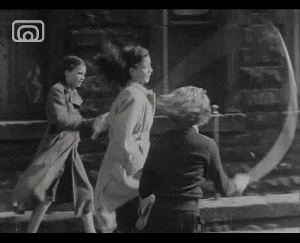The Benefits of Moving Image Education
Moving Image Education (MIE) is a rich context for learning across curriculum areas.
Self-discovery, dialogue and problem-solving are central to MIE and make this form of learning a valuable means to realise the intentions of Scotland's Curriculum for Excellence.
Moving Image Education involves analysing texts, generating creative work and digital storytelling. Learners can explore genres and types of texts that might be less familiar (for example, public information films) or re-examine familiar material. MIE can be used to enhance learning or it can become the basis for delivering aspects of the curriculum.
While many children in Scotland have only read a few books before they start school, many will already have watched thousands of hours of audio-visual narratives.
The close study of films is fun to do and can have dramatic and positive effects on how young people perceive themselves as learners and how they see their place in the world.
The benefits of MIE include:
- Improved literacy
- Learning feels relevant to young people's experiences
- Better understanding of how media is constructed
- Enhanced discussion skills
- Improved self-esteem and self-confidence
- Greater appreciation of culture
- Increased sense of enfranchisement and democratic citizenship
- Positive interaction with digital media
Learners will also gain a more nuanced understanding of how to construct a narrative, which is useful across the curriculum and beyond the school setting.
Filmmaking has been shown in numerous studies to help young people develop the following skills:
- Research
- Analysis
- Team-working
- Planning
- Organisation
- Flexible thinking and multi-tasking
- Problem-solving
- Personal motivation
- Computing, communication and technology skills
- Criticism and self-criticism (including peer-evaluation skills)
- Social awareness
- Moral responsibility
- Presentation (both personal and project-related).
For a more detailed overview please visit our sister site at www.movingimageeducation.org

